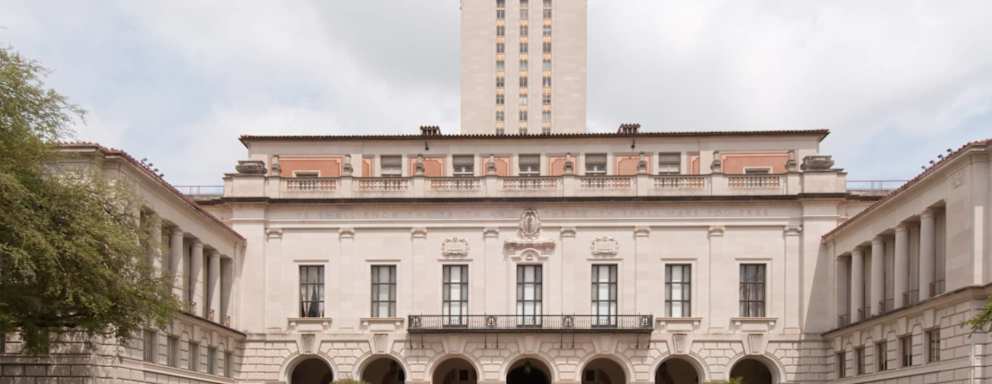Student-Run Group Continues Services After UT Austin Eliminates Program for Undocumented Students
 Credit: Image Credit: nkbimages / E+ / Getty Images
Credit: Image Credit: nkbimages / E+ / Getty Images- The University of Texas at Austin closed its Monarch program following Texas’ ban on diversity, equity, and inclusion offices under Senate Bill 17, which became law Jan. 1.
- Monarch provided advising, mentoring, mental health support, and financial workshops to undocumented and DACA students and students with temporary status in the U.S.
- Rooted, a student-run organization for immigrant students, said that the program did not violate SB 17 since it did not have race- or gender-based programming.
- Rooted demands the university immediately reinstate Monarch and explain the reasoning behind Monarch’s elimination.
Texas’ anti-diversity, equity, and inclusion (DEI) legislation went into effect Jan. 1. It bans DEI offices, hiring preferences, and enrollment training. It also prohibits schools from offering students benefits based on their race or ethnicity.
But it says nothing about programs that help students based on their legal status, one group of students contends.
So when the University of Texas at Austin (UT Austin) eliminated its program for undocumented students, citing Senate Bill 17 (SB 17), students demanded answers.
The Daily Texan, UT Austin’s independent student newspaper, reported the university eliminated the Monarch program — a resource provider for undocumented and Deferred Action for Childhood Arrivals (DACA) students and students with temporary status in the U.S. — on Jan. 1.
Rooted, a student-run initiative for immigrant students at UT Austin, said the Monarch coordinator informed students of the closure Jan. 10. However, the university’s administration has not issued a public statement regarding the closure, according to a statement from Rooted.
The university said the scholarship Monarch offered potentially violates SB 17 and cited the Illegal Immigration Reform and Immigrant Responsibility Act of 1996, according to internal communications acquired by The Dallas Morning News.
In its statement, Rooted demands that the university immediately reinstate the program, explain how it violates SB 17, and allow it to address legal concerns accordingly. In the meantime, Rooted is taking on some of Monarch’s responsibilities.
Rooted refutes that SB 17 applies to the Monarch program since “immigrants are not a single racial or ethnic group,” according to the statement. It also criticized the university for using federal legislation to implement state law and said closing the entire program is unreasonable and unjust because of one scholarship.
“This was a blindside for (Monarch) because we were promised that our program (would) be exempt,” an anonymous alum told The Daily Texan. “About 60% of our students were having negative mental health impacts because of their status. Being an immigrant student, we have unique needs and experiences that add to the stressors of being a regular college student.”
According to Rooted, the Monarch program served over 60 students per semester, hired its first full-time coordinator in 2021, and gained first-time institutional funding in 2023. Monarch provided:
- Advising
- Mentoring
- Mental health support
- Academic, career, and financial workshops
- Community socials
- Staff trainings on immigrant students’ needs
Monarch also offered two $500 scholarships. Rooted plans to take over Monarch’s workshops and support group and now guides students to scholarship websites in lieu of the defunct Monarch scholarship fund.
“Because of the discontinuation of the Monarch program, there are now no dedicated programs providing services for students who are undocumented, hold temporary status, or are from mixed-status families,” Rooted said in its statement. “The burden once again falls to students to provide their own services and resources.”
Rooted asks the community to email university leadership, share Rooted social media posts, sign a petition supporting the demands, and donate to the Rooted fundraiser to compensate for the $10,000 budget lost by the Monarch program’s elimination.
“Anyone can read section C of the UT System (SB 17 Working) Guidance that reads ‘Programs that enhance student achievements, without regards to sex, race, color or ethnicity are exempted,'” communication and leadership junior Victoria, who requested her last name not be used, told The Daily Texan. “We earned our admission here … we paid the school tuition, so we deserve answers.”
Rooted isn’t the first student organization to take over university-sponsored roles after states enacted anti-DEI legislation.
Students Take Over DEI Office Responsibilities After SB 17
Texas Tech University closed its DEI and LGBTQIA centers at the beginning of last semester, so three student organizations are picking up where they left off.
The Texas Tech University Gender and Sexuality Association, Rainbow Leaders Association, and the Student Intersectional Leadership Council have taken over hosting events like Coming Out Stories: Ice Cream Social, Pride Campus Week, and the annual Pride Gala.
Texas, Florida, North Dakota, South Dakota, Utah, and Tennessee all signed anti-DEI bills, sparking opposition by students and educators.
Students at Rice University, a private, nonreligious research university in Texas, are taking advantage of its exemption from SB 17 by offering students at other colleges honorary memberships to Rice PRIDE, the university’s LGBTQ+ undergraduate organization.
“The reactions have been outstanding. We’ve received a lot more attention and interaction than we kind of expected. We thought that maybe a couple of people at [the University of Houston] would participate, and that would be about it,” Cole Holladay, a chemistry major and co-president of Rice PRIDE, told BestColleges.
“We’re really proud of the work that we’re doing. And we’re not going to stop supporting ourselves and other students, regardless of what legislation in Texas might have to say about it.”